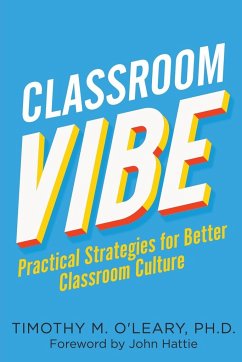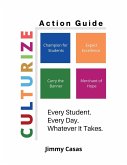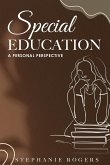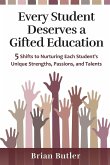Timothy M. O'Leary is a firm believer that decisions about improvements, whether they be for a teacher or school, need to be based on fact, not fancy. In Classroom Vibe he uses data to demystify why some classrooms are primed for learning while others aren't and explains why strategies for change in schools often fail. In breaking down the atmosphere of the classroom as experienced by the students - the 'classroom vibe' - he gives teachers practical steps for improving theirs. The author argues that when teachers focus their improvement efforts on the 'vibe' in each of their classrooms and school leaders focus on supporting their teachers in this endeavour, everyone benefits. He provides a clear framework that highlights how the culture of a classroom can determine whether important teaching strategies will succeed or fail.
Hinweis: Dieser Artikel kann nur an eine deutsche Lieferadresse ausgeliefert werden.
Hinweis: Dieser Artikel kann nur an eine deutsche Lieferadresse ausgeliefert werden.








